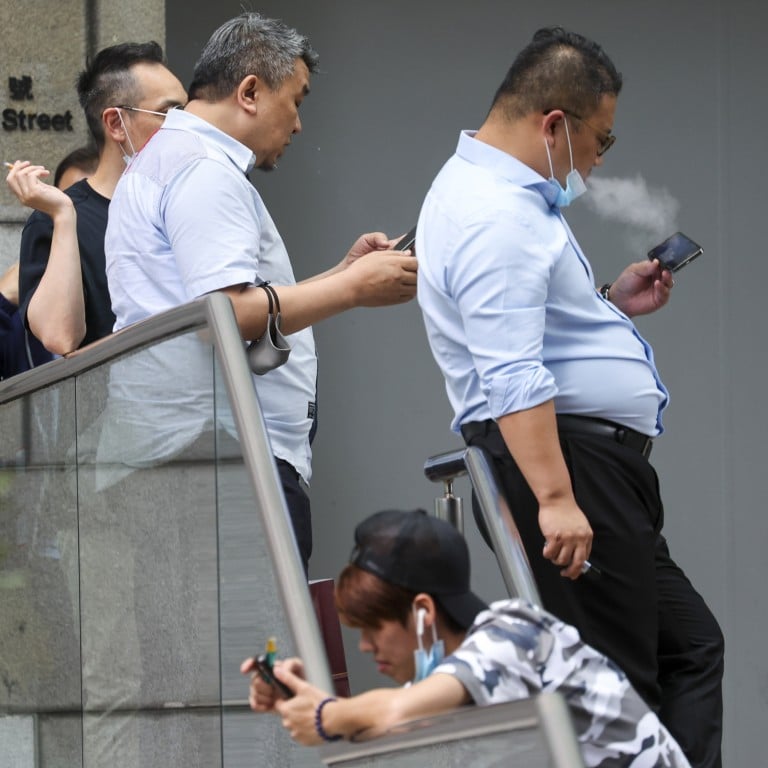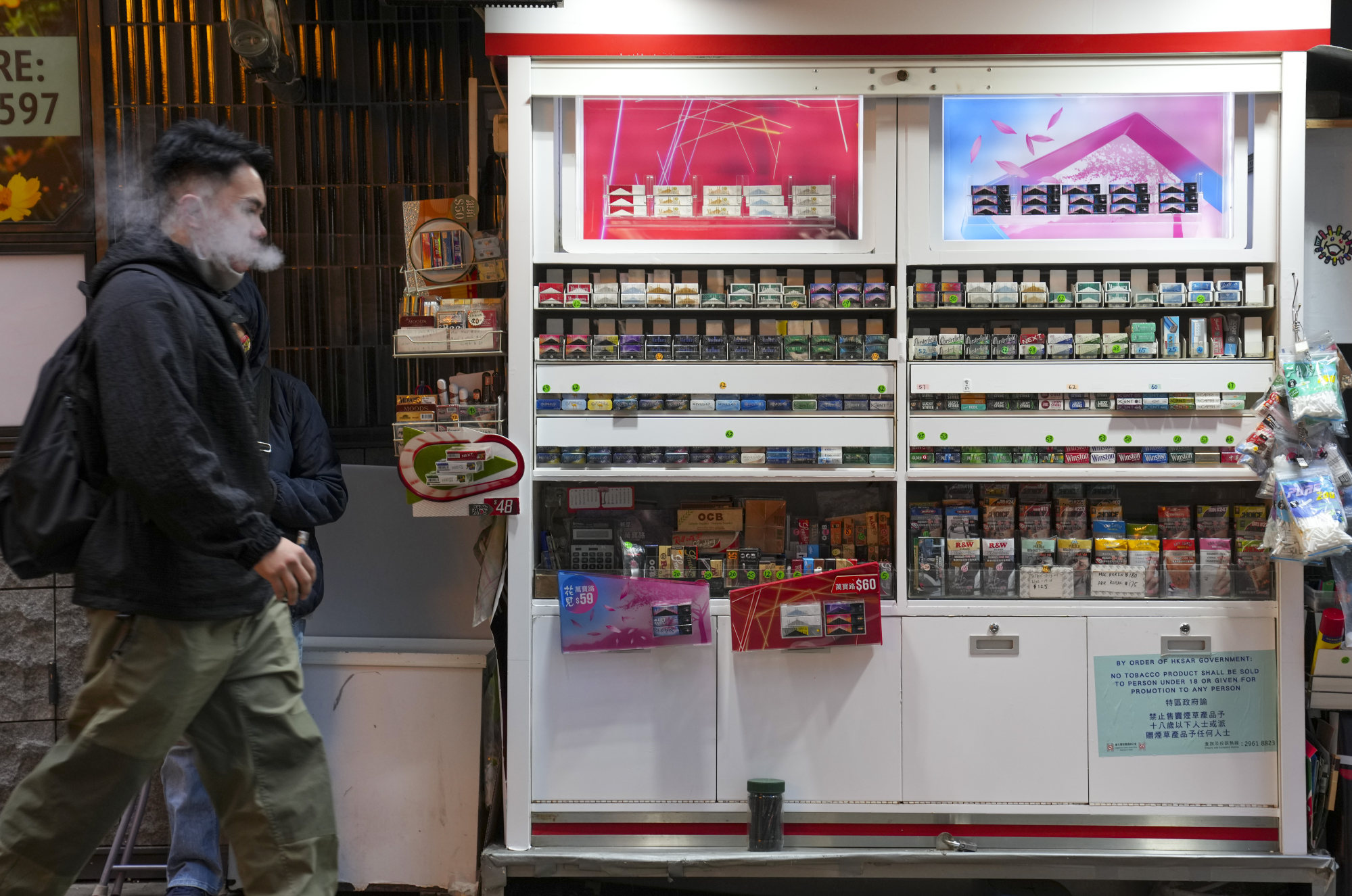
Two-thirds of Hong Kong smokers will quit or reduce habit if cigarette prices rise, group calling for doubled tobacco tax says
- Hong Kong Council on Smoking and Health points to university findings saying more than half of surveyed would either reduce or quit habit in the wake of price increase
- Council last month proposed raising current tax on pack of cigarettes from HK$38 (US$5) to HK$76
About two-thirds of smokers will either reduce or quit their habit if cigarette prices are raised, a group urging authorities to double the tobacco tax has said, citing research from a university in Hong Kong.
The Hong Kong Council on Smoking and Health on Tuesday pointed to a phone survey carried out by the University of Hong Kong that found 76.4 per cent of respondents supported increasing the tobacco tax next year.
Last month, the council proposed raising the current tax on a pack of cigarettes from HK$38 (US$5) to HK$76, which would drive up the price to HK$100 next year.

According to the university survey, about 67 per cent of the 1,719 respondents said they would either reduce or quit smoking if a pack of cigarettes cost more, with more than half, or 52 per cent, declaring they would give up the habit completely.
“With the immediacy and the efficacy of the tax increase, we know that there will be strong protests from tobacco consumers and other related parties,” said Lam Tai-hing, honorary clinical professor at the university’s School of Public Health.
“For smokers, they are the victims of nicotine, and it is hard for them to get rid of the addiction by themselves.”
Lam added that raising the tax was a crucial stepping stone that could help the government achieve its target of reducing the prevalence of smoking in the city from the current 9.5 per cent to 7.8 per cent in three years.
Hong Kong government wants to end ban on mainland alternative smoking product exports
“If the government doesn’t raise the tobacco tax, the target is almost impossible to achieve,” Lam said. “Raising the price to HK$100 is already a very conservative measure. It’s like going from failing the exam to just passing it.”
Lee Ming-tat, a former heavy smoker who managed to quit about two years ago, said a major increase in the tobacco tax might deter people from buying cigarettes.
“The current price of a pack is around HK$60, largely equivalent to the price of one meal. It is likely not deterring people from buying cigarettes,” he said. “But when it is raised to the price of two meals, consumers might start to reconsider.”
The council said it believed the revenue from raising the tax could help the disadvantaged in the city.
“It is estimated that around HK$8 billion of the tax revenue can be used to support existing poverty relief, medical and tobacco control schemes,” said Vienna Lai Wai-yin, the executive director of the council.
She added with more people quitting, medical costs associated with smoking-related diseases could be cut, and productivity would increase.
The council also suggested that the tobacco tax be further raised over time, so a pack of cigarettes would eventually cost HK$200 by 2025.
Government advisers propose ban on cigarettes for future Hong Kong generations
It said the tax rate had remained stagnant over the past decade from 2011 to 2021, while inflation had gone up by about 30 per cent.
“As the inflation rate rises, tobacco prices have largely remained the same in the past several years due to a frozen tax rate,” Lai said. “In this case, more people are likely to buy cigarettes, which is something we do not want to see.”
Among other measures floated by the council to reduce smoking included a ban on Hong Kong residents who were born in 2009 or after from buying cigarettes by 2027, when the group reached 18 years old.
The Health Bureau is expected to unveil plans for stronger tobacco controls for public consultation early next year.


